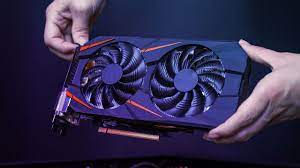How do you know if your GPU is dying? Today, computers have become an extremely complex system of numerous pieces of hardware. That must work together to produce the results desired by the user. One of the most important components of any system is the GPU (Graphics Processing Unit), also known as a graphics or video card. Without a powerful, enough card, no modern video or gaming software could function optimally. This is why users should pay attention to any signs that their GPU is nearing the end of its useful life. As a sudden critical failure at the most inopportune moment could have costly consequences.
One of the obvious signs that something is wrong with the GPU. If the computer system refuses to start and the monitor shows a no connection signal. When resting the system, a loud beep would be heard. Most modern motherboards are also equipped with the ability to disable faulty hardware components. While displaying the corresponding error code for the particular part.
Check out the best 650 watt power supply on Blogshour
In some cases, however. The GPU may not experience a sudden crash and could instead be dying for an extended period due to malfunctioning components. This process will manifest itself in the appearance of artifacts. Visual anomalies or failures that can be observed when the card is under pressure. Such as playing video games, watching movies or rendering. Please note that most video games may have visual glitches due to their encoding and not necessarily due to a GPU malfunction. To check if this is the case, the best way is to download the GPU stress test software. Select the appreciation test and see how well your GPU will handle it.
Another common problem that could cause GPU issues if not resolved in time is overheating. Most computer systems will automatically restart if the GPU temperature exceeds a certain threshold. Overheating could be caused by an excessive accumulation of dust and dirt on the surface of the card. Or by problems with the system or the cooling fan. To ensure that your GPU is operating within the optimal heat range, it is recommended to download the heat monitoring software. Start a GPU-intensive process and check if the software shows problematic reads.
Another surefire way to determine if the problems you are experiencing are related to a faulty GPU is to unmount your graphics card and run it on a different system or take a different GPU and connect it to your computer. If the problems no longer appear, you may need to start looking for a new GPU.
Thread is a promising way for all your smart home devices to connect with each other. With a little foresight, you can build a network that is particularly responsive and doesn’t require a dedicated hardware hub. As a widely used standard, Thread is still gaining speed, but you can already start to support it with some of the best smart home devices available.
As a smart speaker, the mini performs very well when it comes to sound, and as good as you can expect from Siri. Thanks to the seamless integration of Airplay, you can send audio from your other Apple devices to the speaker.
I hope this guide on How do you know if your GPU is dying will help you.

